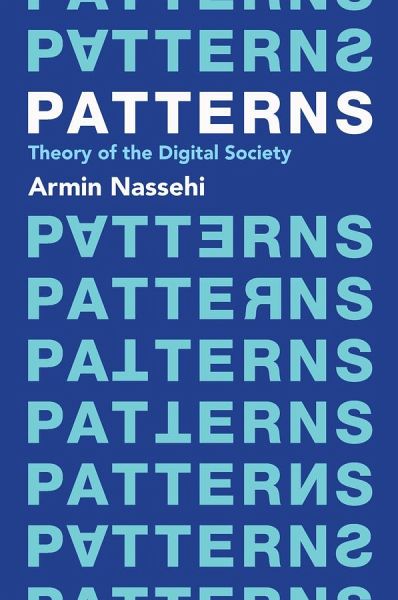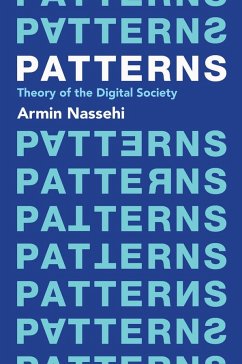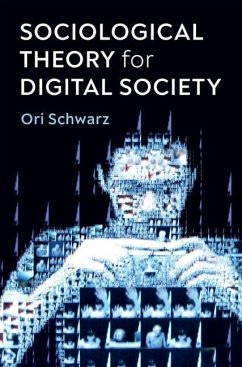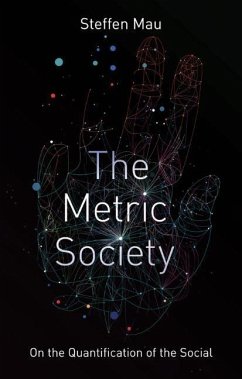
Patterns
Theory of the Digital Society
Übersetzung: Wittwar, Mirko
Versandkostenfrei!
Versandfertig in 2-4 Wochen
30,99 €
inkl. MwSt.
Weitere Ausgaben:

PAYBACK Punkte
15 °P sammeln!
We are inclined to assume that digital technologies have suddenly revolutionized everything - including our relationships, our forms of work and leisure, and even our democracies - in just a few years. Armin Nassehi puts forward a new theory of digital society that turns this assumption on its head. Rather than treating digital technologies as an independent causal force that is transforming social life, he asks: what problem does digitalization solve?When we pose the question in this way, we can see, argues Nassehi, that digitalization helps societies to deal with and reduce complexity by usi...
We are inclined to assume that digital technologies have suddenly revolutionized everything - including our relationships, our forms of work and leisure, and even our democracies - in just a few years. Armin Nassehi puts forward a new theory of digital society that turns this assumption on its head. Rather than treating digital technologies as an independent causal force that is transforming social life, he asks: what problem does digitalization solve?
When we pose the question in this way, we can see, argues Nassehi, that digitalization helps societies to deal with and reduce complexity by using coded numbers to process information. We can also see that modern societies had a digital structure long before computer technologies were developed - already in the nineteenth century, for example, statistical pattern recognition technologies were being used in functionally differentiated societies in order to recognize, monitor and control forms of human behaviour. Digital technologies were so successful in such a short period of time and were able to penetrate so many areas of society so quickly precisely because of a pre-existing sensitivity that prepared modern societies for digital development.
This highly original book lays the foundations for a theory of the digital society that will be of value to everyone interested in the growing presence of digital technologies in our lives.
When we pose the question in this way, we can see, argues Nassehi, that digitalization helps societies to deal with and reduce complexity by using coded numbers to process information. We can also see that modern societies had a digital structure long before computer technologies were developed - already in the nineteenth century, for example, statistical pattern recognition technologies were being used in functionally differentiated societies in order to recognize, monitor and control forms of human behaviour. Digital technologies were so successful in such a short period of time and were able to penetrate so many areas of society so quickly precisely because of a pre-existing sensitivity that prepared modern societies for digital development.
This highly original book lays the foundations for a theory of the digital society that will be of value to everyone interested in the growing presence of digital technologies in our lives.













